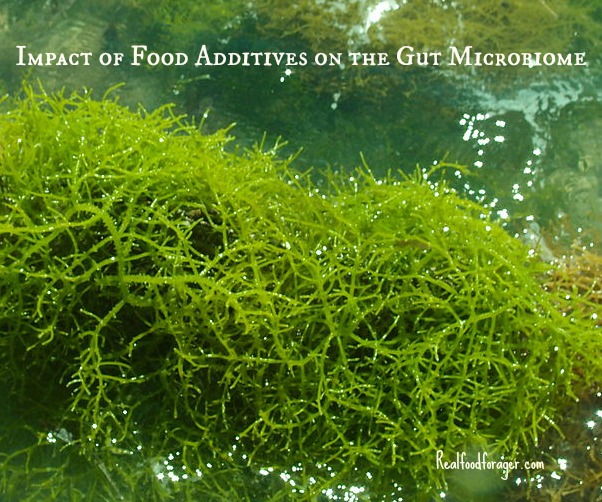Research on the gut microbiome is barreling through the scientific community with the speed of light. So much of this research will validate what nutritionists have been saying for years.
This latest announcement indicates a new study funded by the NIH that will investigate how food emulsifiers impact the gut microbiome and how they play a role in the development of chronic inflammatory bowel diseases.
The investigator, Dr. Andrew Gewirtz PhD, at Georgia State University, will study how the commonly used food emulsifiers, such as carboxymethylcellulose and polysorbate 80, disrupt the relationship between gut bacteria and the gastrointestinal tract. He will also look at the different bacteria population in the intestinal tract that drives inflammation.
Chronic inflammatory diseases are on the rise in the past 60 years. This includes inflammatory bowel diseases and metabolic syndrome – which includes insulin resistance, abnormal cholesterol levels, high blood sugar levels, excess body fat around the waist and increased blood pressure.
While some may attribute these diseases to genetics, this research will also examine the underlying mechanisms by which altered gut microbiota influence the development of metabolic syndrome. They will target the environmental triggers that abound in our food supply.
Carrageenan in the Food Supply Promotes Inflammation
For instance, previous studies have found that the food additive, carregeenan can induce ulcerative colitis in mice (here) and (here). Additionally, both degraded and undegraded carrageenan have been found to promote cancer.
This study published in Environmental Health Perspectives, led by J K Tobacman, a well known researcher in this field has concluded that,
Because of the acknowledged carcinogenic properties of degraded carrageenan in animal models and the cancer-promoting effects of undegraded carrageenan in experimental models, the widespread use of carrageenan in the Western diet should be reconsidered.
While there is a difference between degraded and undegraded carregeenan, (read more about that here), it is clear that both forms of carregeenan can induce inflammation in the body and is best avoided.
Carrageenan appears in many processed health food products such as yogurt, chocolate, soymilk and other dairy alternatives to keep their ingredients from separating, ice cream, nutritional shakes, milk products, milk replacements and sadly, infant formula and toothpaste.
It is typically added to give the foods a thicker consistency and to make low-fat versions taste fuller. It is derived from red algae so you may think it is “natural.” It is anything but…
Carrageenan has been listed as a substance generally recognized as safe (GRAS) since 1973, but it has been shown to have an extremely detrimental effect on mammals.
Due to the variations in people’s intestinal microflora, or bacteria contained in the gut, researchers suggests that the additive may promote inflammation by altering the type of bacteria present following the consumption of carrageenan. Symptoms associated with altered bacteria concentrations within the gut include inflammatory colon polyps and abnormal tissue growth which can be signs of a more serious health problem.
Studies even propose that the body exhibits the same response to carrageenan as it does to a bacterial infection from Salmonella and its development of disease.
Gut Inflammation and Genetics
According to Dr. Gewirtz, the research will mainly be focused on emulsifiers
because these detergent-like molecules might promote the rearrangement of parts of chromosomes in bacteria across the lining of the gastrointestinal tract… The presence of emulsifiers in the world’s food supply roughly parallels increases in chronic inflammatory diseases. This project will study how this common class of food additives could be contributing to a public health epidemic.
A public health epidemic.
Triggered by a common food additive that irritates and ulcerates the gut lining – something that we have known for years but the FDA has said is generally recognized as safe.
At least now, with all this new research around the microbiome, we will see the relationship between these food additives and pathogenic infiltration of the gut lining that induces inflammation and disease.
I’m excited to see the results of this study! What about you? Leave a comment and let me know!











